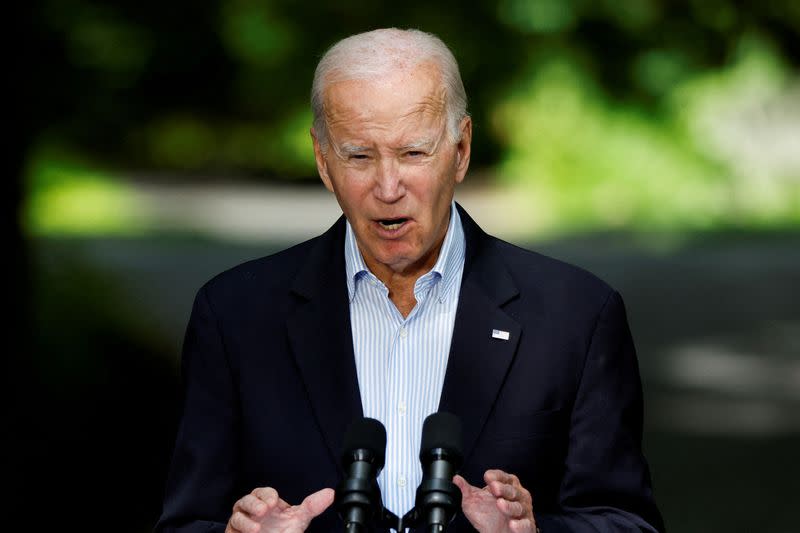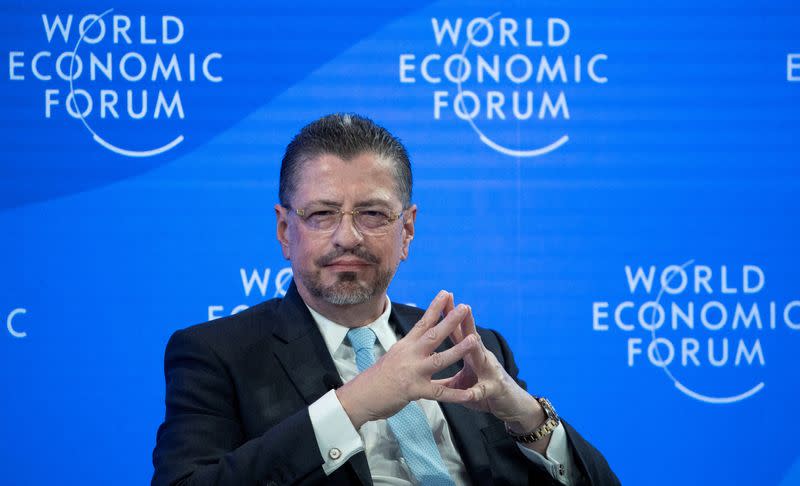Biden to meet Costa Rica's president next week to discuss immigration, China
By Steve Holland and Kanishka Singh
WASHINGTON (Reuters) - U.S. President Joe Biden will host Costa Rican President Rodrigo Chaves next Tuesday, the White House said on Wednesday, with two Biden administration officials adding that topics in the meeting will include immigration and China.
Last year, Costa Rica said it would work with Washington on strengthening immigration and border policing in the Central American country.
Biden took office in 2021 pledging to reverse many of the hardline policies of former President Donald Trump, a Republican, but has adopted some Trump-like border measures as his administration has faced record migrant crossings.
"The two leaders will discuss how our two countries can build out inclusive and sustainable economies, including through the Americas Partnership for Economic Prosperity, advance democratic values in the region, promote safe and orderly migration in line with the principles of the Los Angeles Declaration on Migration and Protection, and address regional security challenges," the White House said in a statement.
As Biden gears up to seek re-election in 2024 in a possible rematch against Trump, immigration remains a political flashpoint.
Biden's new asylum regulation presumes that most migrants are ineligible for asylum if they passed through other nations without seeking protection elsewhere first, or if they failed to use legal pathways for U.S. entry. The measure took effect on May 11.
Advocates and some Democrats have criticized Biden for not going far enough to reverse hardline Trump policies and adopting some restrictive measures. At the same time, Republicans have lambasted Biden as being too lenient.
Biden and Chavez will also discuss what the U.S. considers to be China's expanding influence in the region, Biden administration officials said.
U.S.-China relations have been tense for years over a range of issues like security, trade tariffs, Taiwan, the origins of the COVID-19 pandemic, technology, human rights, and espionage.
(Reporting by Steve Holland and Kanishka Singh in Washington)



